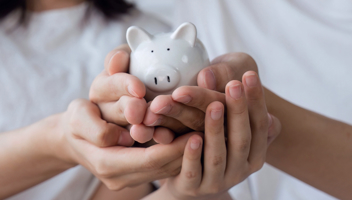It’s rare that a minor tax change makes the front pages and yet, over the last week or so, there have been multiple attention-grabbing headlines about a so called new ‘side hustle tax’ that, believe it or not, doesn’t actually exist.
Misleading headlines such as “HMRC rolls out ‘side hustle tax’ for online sellers on eBay, Vinted and more”, alongside misinformation regurgitated on social media, have caused uproar among the Vinted generation.
The cost of living crisis, as well as a desire to shop more sustainably, has seen a boom in the buying and selling of second-hand clothes, so it’s no surprise that HMRC is now focusing its attention on online sellers.
However, despite what the media would have you believe, there are no new tax rules, only new reporting requirements. Even those are for the selling platforms themselves, rather than individuals. Since 1st January, online platforms such as Vinted, Ebay, Uber and Airbnb have been required to collect and send information to HMRC about anyone who makes money above a certain threshold. The tax rules that apply to these type of earnings are the same as they always have been. The only difference is that from January 2024, HMRC will have a lot more visibility about the money that is made from these platforms, meaning anyone who should have been reporting their income is more likely to be caught out in the future.
You only need to worry about reporting income from any online selling platform if you are seen to be ‘trading’. There is no statutory definition of ‘trading’ but broadly, you have to be operating with a view to making a profit. Therefore, if you are simply selling items on Vinted that you no longer want, such as clothes that no longer fit, you will generally be selling these for less than you paid for them. Your activity is unlikely to amount to trading as you are selling your own personal possessions. This would differ to someone who actively scouts out charity shops for bargains with a view to selling these items to make a profit.
Even for those who are trading, HMRC’s trading allowance means that if your income online was less than £1,000 in any tax year, you would not be subject to income tax and would not be required to submit a tax return or even tell HMRC about it.
HMRC has prepared a useful information sheet with examples but, as with most tax matters, there will be grey areas and it is important to consult a tax adviser if you think you should have been reporting trading income and haven’t been.
If you are making money from a side hustle and need advice on getting your tax affairs up to date, or if you’re not sure whether what you are doing constitutes trading, don’t hesitate to get in touch with our private client team who will be able to assist.
Written by
Related News, Insights & Events

Love Is In The Air – What do inheritance tax changes mean for marriage and civil partnerships?
Whilst the government’s proposed taxation policy is not the most romantic of topics may it be the reason more couples decide to tie the knot and reverse this decline?

Avoid a mess – ordering the lives of busy owner-managers
At Burness Paull, we work with many owner-managers operating across a range of sectors.

Significant changes to inheritance tax in the Autumn Budget
Today’s budget has seen the most significant changes to inheritance tax in a generation.





